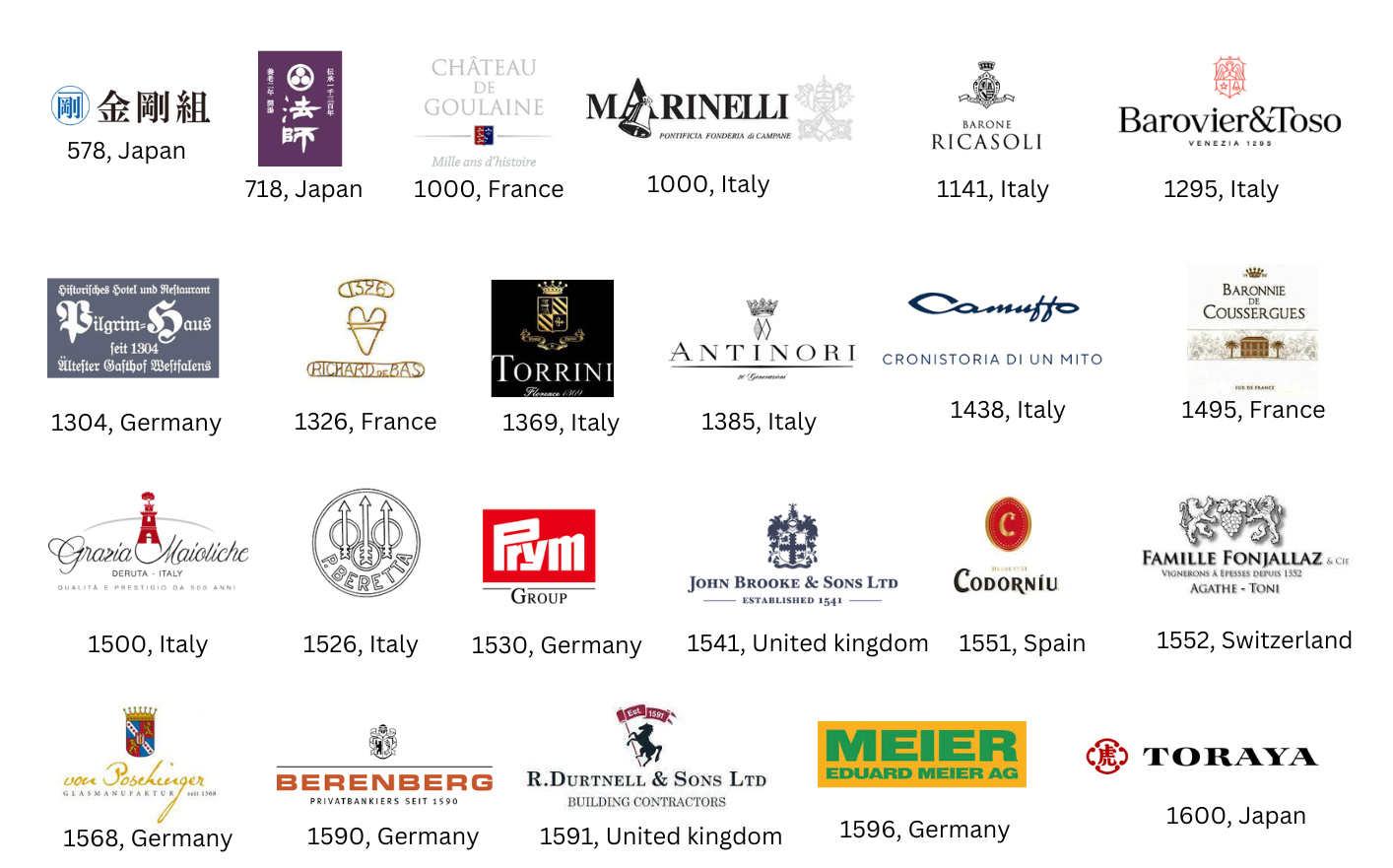
Family businesses perform a crucial role in the global economy. Family businesses having the ability to survive for centuries is a testament to the strength of the entrepreneurial spirit and the importance of family foundations of values and traditions. In this article, we will explore the world's oldest family businesses, their techniques for success, the secrets behind their longevity, and the key things that help them thrive.
Hoshi Ryokan:Founded in 718 AD, in Japan, Hoshi Ryokan is the oldest continuously operated family business in the world. Over the centuries, the Hoshi family has adapted to changing market conditions and technology, and maintained a strong reputation for quality and customer service, to ensure the survival and success of their business for over 1,300 years.
Fonderia Pontificia Marinelli:Founded in Italy in 1010 AD, Fonderia Pontificia Marinelli, is one of the oldest family-owned foundries in the world. The Marinelli family has maintained their business for over a thousand years by focusing on quality craftsmanship, investing in new technology, and preserving their family traditions and values.
Zildjian Cymbal Company:Founded in 1623 in Turkey, the Zildjian Cymbal Company is one of the oldest family businesses in the world. The Zildjian family has maintained their business for over 400 years by focusing on quality and innovation, and preserving their family traditions and values.
Family businesses must be able to adapt to changing market conditions, customer demands, and technological advancements to remain relevant and competitive. Family businesses can ensure continued success by staying attuned to shifts in the market.
Family businesses that have a strong sense of purpose and shared values tend to be more successful over the long term. By staying focused on what is truly important to them, these businesses can preserve their heritage and mission, even as they face new challenges and changes.
Family businesses that foster strong family bonds and relationships often enjoy greater success than those that don't. Open communication, mutual support, and a shared sense of responsibility help to ensure that family members can work together effectively and resolve conflicts constructively.
Building and maintaining a positive reputation for quality, reliability, and customer service is critical for any business, but especially for family businesses. Establishing a strong brand and cultivating a loyal customer base through word-of-mouth referrals and repeat business are key components of a successful family business.
Continuously investing in growth and development, through research and development, employee training, and other initiatives, helps to ensure that a family business remains competitive and relevant over time.
A well-planned succession process is crucial to the survival and success of family businesses. This includes developing a clear understanding of the roles and responsibilities of each family member, determining the best way to transfer ownership and management of the business, and preparing the next generation of leaders for their roles.
Establishing clear rules and procedures for decision-making and dispute resolution, through a formal family council or similar mechanism, helps to ensure that a family business remains united and aligned even as family members take on different roles and responsibilities. Preserving family traditions and values helps to maintain the unique culture and identity of a family business, which can be a key source of strength and stability over time.
Open and transparent communication among family members, especially in the case of disputes, is key to resolving conflicts quickly and effectively and maintaining the stability of the business.
Incorporating professional management practices and outside expertise can help to ensure that a family business remains competitive and successful over the long term.
Clearly separating ownership and management responsibilities can help to prevent conflicts of interest and ensure that the business is run in a professional and efficient manner.
In conclusion, the longevity of family businesses is a testament to their ability to adapt and evolve over time, while still maintaining the traditions and values that have made them successful. Key factors that have contributed to their survival include succession planning, family governance, transparency and communication, professionalization, separating ownership and management, flexibility, investing in the future, and preserving family traditions and values.
Family businesses have proven to be resilient and enduring institutions that have stood the test of time, and they will likely continue to play a vital role in the global economy for generations to come.
